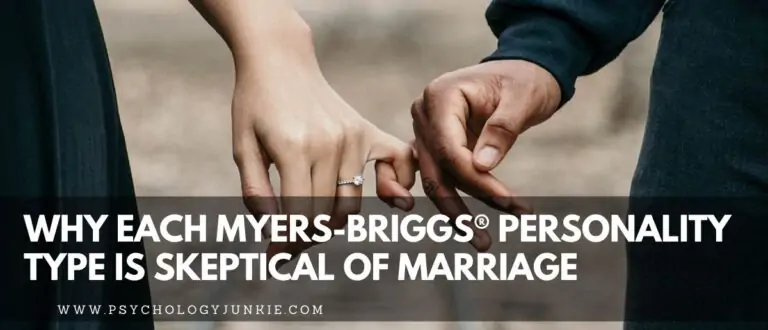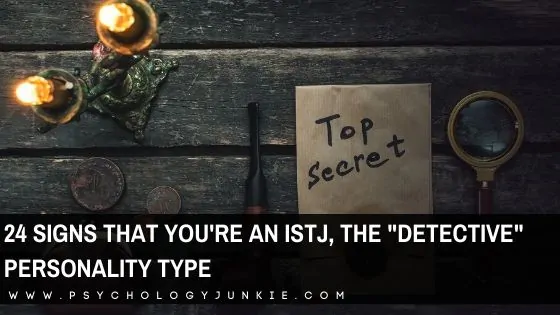Here’s What Makes You Dangerous, Based on Your Myers-Briggs® Personality Type
Have you ever wondered what would happen if you got on someone’s bad side? Each personality type has defense mechanisms and talents that they can use to take down an enemy or protect themselves from harm. What are yours? Find out!
Not sure what your personality type is? Take our new personality questionnaire!

Table of contents
Estimated reading time: 12 minutes
Here’s What Makes You Dangerous, Based on Your Myers-Briggs® Personality Type
The ENFP
There are a lot of misconceptions about ENFPs. People see the big smiles, the spontaneous energy, the human confetti cannon persona, and assume they’re just here for a good time. But beneath that playful exterior is a mind that’s constantly scanning, questioning, and testing. ENFPs have an almost eerie ability to pick up on hidden motives, reading between the lines and sensing when something—or someone—is off.
And here’s the thing: they’re not afraid to say it. If you’re being phony, manipulative, or trying to pull the wool over people’s eyes, the ENFP is the first one to call you out—loudly, and maybe in front of an audience. These types don’t just detect inauthenticity; they expose it. They challenge people, push buttons, and get others to confront their own contradictions. Sure, they’re empathetic and warm, but that doesn’t mean they’re going to let people slide into self-delusion without a fight.
Big mistake: Assuming they’ll stay quiet to keep the peace.
Read This Next: 10 Things That Excite the ENFP Personality Type
The ENTP
ENTPs get a thrill from playing devil’s advocate and questioning pre-established rules and traditions. These types are dangerous when they’re underestimated or forced into a corner. In situations like this, they can easily unhinge an entire organization by dismantling one small part of it. They quickly notice how complex systems are maintained and how each piece plays a role. Strategic and visionary, they are able to solve (or create) technical puzzles that will stump even the most analytical mind. Risk isn’t a huge fear of theirs, and they don’t mind putting their security on the line to bring down an opponent. They enjoy the thrill of mixing things up and creating chaos in order to reveal the truth.
Big mistake: Thinking you can beat them with conventional logic. They’ve already considered every angle—and a few that don’t even exist yet.
The INFP
At first glance, INFPs might seem dreamy, introspective, maybe even a little reserved. But if you think that makes them pushovers, you’re in for a rude awakening. These types are champions of the underdog, and when they see cruelty, injustice, or hypocrisy, their quiet demeanor transforms into something fierce. They don’t just get upset—they ignite. There’s no half-hearted activism here; when an INFP believes in something, they believe with every fiber of their being.
And good luck trying to manipulate them. While they may be deeply empathetic, that doesn’t mean they’re easily swayed. Their values are theirs, and no amount of emotional guilt-tripping is going to make them abandon what they know is right. They’ll listen, they’ll consider, but if you try to push them into a belief that doesn’t align with their moral code? Yeah, that’s not happening.
Big mistake: Assuming their gentleness means they won’t fight back. They will—just not in the way you expect. And it will haunt you.
The INTP
Knowledge is power, and if that’s true, INTPs are basically walking supercomputers. These types absorb information like a sponge, picking apart theories, spotting inconsistencies, and analyzing everything from multiple angles—all before most people have even finished forming a single thought. They’re not the type to react emotionally in a crisis; instead, they detach, zooming out like a strategist overseeing a battlefield, calmly mapping out the best escape route while everyone else is panicking.
And if you think you can trap them? Good luck. INTPs can mentally dismantle most systems before you even realize they’re doing it. They spot the loopholes, the hidden flaws, the tiny cracks that most people miss. If they ever do decide to go on the offensive, their attacks aren’t loud or impulsive—they’re precise, devastating, and backed by an almost unfair level of accuracy. One perfectly placed verbal takedown from an INTP can have someone re-evaluating their entire existence.
Big mistake: Trying to corner them. They’ve already figured out three ways to get out—and one of them involves making you look like the fool.
The ENFJ
ENFJs don’t just influence people—they move them. Charismatic, insightful, and eerily attuned to the emotions and motivations of others, they have a way of making people feel seen, understood, and—most dangerously—inspired. Most of the time, they use this power for good, rallying communities, lifting people up, and helping others reach their full potential. But if you cross them? If you threaten someone they care about or stand in the way of their vision? Well… let’s just say they know exactly how to dismantle an opponent without ever raising their voice.
ENFJs are emotional strategists. They instinctively understand social dynamics, group psychology, and how to turn the tide of public opinion without making it obvious. If they wanted to start a movement, they could. If they wanted to turn an entire group against you? They could do that, too. The question isn’t whether they can manipulate a situation—it’s whether their moral compass tells them to.
Big mistake: Assuming their warmth means they’re harmless. They’re not just playing the game—they’re writing the rules.
The ENTJ
If you somehow manage to make an ENTJ your enemy, congratulations—you’ve just become a problem to be solved. And ENTJs love solving problems. These types aren’t just aggressive go-getters; they’re master strategists who can take a chaotic mess and turn it into a ruthless, efficient plan of action before you’ve even realized what’s happening.
What makes them especially dangerous? Their ability to remove emotions from the equation. They don’t get lost in petty drama or impulsive revenge—no, they step back, analyze the situation like a battlefield, and start orchestrating your downfall with the precision of a general leading an army. If you waste their time, betray their trust, or—worst of all—threaten someone they care about, they’ll focus on you with a level of intensity that’s frankly terrifying. And because they have an uncanny ability to predict outcomes, they’ll likely be three moves ahead before you’ve even figured out you’re in trouble.
Big mistake: Thinking you can out-plan them. They already have a contingency plan for your contingency plan.
The INFJ
INFJs are often underestimated because of their quiet, dreamy nature. But beneath that calm exterior is a mind that’s constantly calculating. These types don’t just live in the moment; they live five, ten, even twenty steps ahead. They don’t just sense what’s happening—they know what’s about to happen. It’s like they’re watching a slow-motion domino effect that nobody else can see, and they’re already predicting exactly how it will all play out.
Most of the time, INFJs use this foresight for good. They guide, mentor, and help people avoid painful mistakes. But cross them? Hurt someone they love? That’s when things get… unsettling. INFJs don’t go for loud, aggressive takedowns—they get inside your head. They know exactly what words to say to unravel your confidence, exactly what truths to reveal to make you question yourself. They won’t just argue with you; they’ll make you confront the parts of yourself you were desperately trying to ignore. It’s psychological warfare with a velvet touch, and you won’t even realize how deep it’s cutting until it’s too late.
Big mistake: Assuming their silence means they’re powerless. They’re not speaking because they’re waiting.
The INTJ
If you’ve somehow made an INTJ your enemy, one thing is certain: you were a problem long before you realized it. INTJs don’t react impulsively or lash out in the heat of the moment. No, they observe. They analyze. They track patterns. And by the time you even sense there’s a problem, they’ve already mapped out three different ways to dismantle your entire operation.
These types are master strategists, seeing the long game when everyone else is distracted by short-term wins. Trying to manipulate them? They saw through it before you even opened your mouth. Think you can outmaneuver them? You’re already moving in the direction they anticipated. INTJs don’t fight battles unless they know they can win, and they never enter a conflict unprepared.
Big mistake: Thinking you have the upper hand. If an INTJ is letting you believe that, it’s because they want you to.
The ESFP
People tend to underestimate ESFPs. They’re friendly, charming, and always ready with a joke—but don’t mistake that for naivety. Beneath the easygoing exterior, ESFPs are hyper-aware of their surroundings, constantly picking up on non-verbal cues, microexpressions, and tiny shifts in behavior. They don’t need a master plan to catch someone off guard; they’re already reacting before the other person even realizes what’s happening. Their instinctive ability to read people makes them nearly impossible to deceive. Try to trick an ESFP, and you’ll be hit with a reality check so fast you won’t know what happened. They love defying expectations, turning the tables, and proving—sometimes dramatically—that they’re not as easy to fool as people assume.
Big mistake: Thinking their friendliness means they’re oblivious. They’ve already clocked your agenda before you’ve finished your first sentence.
The ESTP
ESTPs fight to win. Fast, aggressive, and impossible to intimidate, these types thrive in chaos. They don’t have time for elaborate battle plans; they react in real-time, dodging, countering, and striking before their opponent even realizes what’s happening. If you challenge an ESTP, be prepared for a whirlwind of sharp comebacks, lightning-fast reflexes, and the kind of audacity that makes them both terrifying and oddly charming. They’ll either dismantle you with sheer confidence or, if it gets physical, they’ll win by being just a little faster, a little stronger, and a whole lot more willing to take a risk.
Big mistake: Trying to outmaneuver them in the moment. They don’t hesitate, and hesitation is what gets you flattened.
The ISFP
ISFPs are strong-willed defenders of those who they believe are persecuted, oppressed, or disadvantaged. They pair their emotional awareness with a keen attentiveness to what is happening around them in the present moment. While they may seem gentle and easy-going at first glance, they can quickly switch gears and become intense and physically aggressive in defense of someone they are protecting. They enjoy the thrill of action and physical experience and can move quickly to take action in a situation where the values or safety of someone they care about is threatened. They can also quickly spot signs of inauthenticity or hidden motives. This makes them very hard to trick or manipulate.
Big mistake: Assuming their kindness means they won’t fight back. Push an ISFP too far, and you’ll see just how fast quiet turns to lethal.
The ISTP
ISTPs are the enemies you never see coming. Unlike their ESTP cousins, they’re not brash or showy—they’re patient, precise, and calculating. They don’t act on impulse; they wait for the perfect moment to strike. Their ability to analyze their surroundings is borderline terrifying. Think Jason Bourne: scanning the room, picking up on every weakness, and taking someone down before they even know a fight has started. They don’t get emotional, they don’t bluff, and they don’t waste time. If you push an ISTP too far, you won’t get a dramatic explosion—you’ll just suddenly realize you’ve lost.
Big mistake: Assuming their silence means they’re not paying attention. They’ve already figured out five ways to take you down.
The ESFJ
ESFJs don’t need to throw punches to take down an opponent—they just need to talk. Charismatic and socially attuned, they have a powerful ability to influence group dynamics. If someone threatens their loved ones or their values, ESFJs won’t come at them directly; instead, they’ll subtly shift the social tide, making sure everyone else sees exactly why this person can’t be trusted.
People tend to assume ESFJs are just warm and nurturing, which they are—but they’re also fiercely protective. If they decide someone is a threat, they’ll send up warning signals faster than you can say “social exile.” And because they’re natural connectors, they can rally a network of support almost effortlessly. If things get really heated, they’re not above direct confrontation, either—especially if someone they love is in immediate danger.
Big mistake: Thinking their kindness makes them a pushover. They’re not just part of the group—they run it.
The ESTJ
ESTJs don’t do nonsense. They don’t do excuses. And they definitely don’t do laziness. If someone is slacking off, breaking rules, or generally being incompetent, ESTJs will step in and set things straight—efficiently and without hesitation. They see the world as a system that needs to function smoothly, and if you’re clogging the gears? You’re getting removed.
These types aren’t prone to emotional manipulation, and they have zero patience for dishonesty. They trust logic, results, and track records, which means if you try to deceive them, they’ll see right through it. ESTJs don’t waste time plotting revenge; they just make sure that incompetence and dishonesty get exactly the consequences they deserve. They’ll either demote you to your rightful place or reorganize the situation so that your impact is minimized entirely.
Big mistake: Thinking you can charm or guilt your way out of accountability. ESTJs respect results, not excuses.
The ISFJ
ISFJs are the last people to go looking for a fight, but if you cross a line? They never forget. Thoughtful, observant, and detail-oriented, they take their time before acting—but once they commit to a cause, they see it through to the bitter end. If someone violates their values or harms someone they love, they don’t react impulsively; instead, they work quietly, carefully, and with the dedication to set things right.
What makes ISFJs particularly formidable is their patience. They don’t get distracted or lured into dramatic confrontations; they simply chip away at their opponent’s weak spots until they’ve dismantled the entire plan. They’re also incredibly perceptive when it comes to people’s emotions and behaviors, which means they can anticipate missteps before they even happen.
Big mistake: Thinking their quiet nature means they’ll let things go. They won’t. They’ll just wait until the perfect moment to act.
The ISTJ
Focused, logical, and quick to notice patterns and inconsistencies, ISTJs are the enemy you never saw coming. At first glance, they seem reserved and down-to-earth, not particularly intense or combative. But the more time they spend around people the more they pick up on hidden weaknesses, habits, motives, and tendencies. If someone poses a threat they can quickly turn their enemy’s defects against them while patiently composing the perfect scheme to render their plot ineffective. ISTJs are persistent, dedicated, and not easy to distract. This can be a formidable weapon, especially if their opponent is easily sidetracked.
Big mistake: Assuming their silence means they’re not paying attention. They’ve already taken notes—and they have receipts.
What Are Your Thoughts?
Find out more about your personality type in our eBooks, Discovering You: Unlocking the Power of Personality Type, The INFJ – Understanding the Mystic, and The INFP – Understanding the Dreamer. You can also connect with me via Facebook, Instagram, or Twitter!










As an infj I can relate to all of these, is this like the psychic on the street generalizing enough to relate to all people or the chameleon effect of my type. If it is a chameleon effect then take all the best and worst of all types and place that under the infj.
Really useful!! Loved it…
I enjoyed this approach. I’d like to more articles like this one.
Believing in MBTI and devoting a career to it is dangerous. But who am I to speak, just a silly European.
We really need to stop taking about the MBTI. It has been proven again and again that it’s a measure with no scientific validity. Objective studies have not been able to discern these types in natural samples. Anyone using it while claiming to be a psychologist, is not practicing science, is not professional, and is instead a peddler of pseudo-science, riding the coat-tails of those who have done the hard work.
It would have been very helpful to know what the abbreviations on personality traits were. I was disappointed and there was no point in me reading.
I just noticed have every characteristics of these personalities,how is that even possible,do i have a mixed personality,i demand a response please.
As an INTP I only wish I had the powers described here…I’m more likely to find myself the victim of this strategy, but like most introverts I require a fair amount of time to process, so often by the time I’ve dismantled someone’s argument (if there are indeed flaws, as some are ironclad) the discussion is over, the lights are off and everyone has gone home. It’s usually only then that I realize my opponent had sidestepped the main thrust of my argument, either deliberately or inadvertently or had introduced non sequiturs that made him/her look good but didn’t address the topic at hand. Then I spend the next few days revisiting the argument in my head, kicking myself over what I should have said but didn’t and trying to figure out how to avoid situations like this in the future. Eventually I conclude that people are just mean and cruel and that I should avoid discussion or voicing opinions in mixed company altogether.
I found this post incredibly insightful! It’s fascinating to see how different Myers-Briggs types can possess unique strengths that make them ‘dangerous’ in their own way. I particularly resonated with the description of ENFPs—our passion and creativity can definitely be a double-edged sword. Thanks for sharing such a thought-provoking perspective!
I don’t think we need to stand on the side of accusations here. When someone does this, aren’t we actually seeing more about them than the subject they speak of. After all, we don’t have another person’s opinion. We have our own. The MB has enough to offer that makes it a worthwhile subject. I have used it as an ice breaker so many times and so successfully. There are many people who find it hard to locate what’s inside. If you hand a person an envelope they will surely open it and read the contents. MB is an envelope that holds a personal message for everyone but on their own terms and at their own level.
If we accuse it with a rock solid dislike title, we deny another the possibility, the potential and the tool they can use themselves.
Let’s just take what we need and leave others to do the same instead of needing to insist others agree or see our so called rightness. Who knows, the people who have criticized the MB might actually discover benefits in five years. That applies to everything really. A sapling cannot see over the object next to it until it grows a little taller. Know what I mean ?